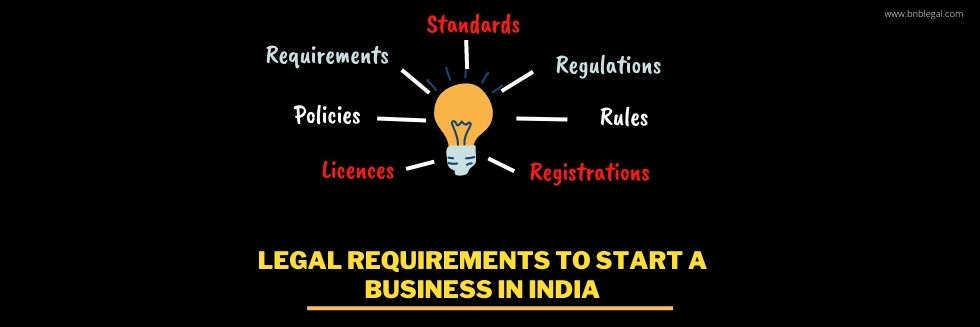The legal ability of parties to engage in a binding contract is referred to as “capacity to contract” or “contractual capacity.” It explores the subject of “who can enter into a contract and who cannot” in general. For any party to pursue their obligations under the agreement in a court of law, the other party must meet three requirements:
- a person must reach the age of majority;
- they must be of sound mind;
- they cannot be prohibited from entering into a contract by any legislation to which they are subject.
It indicates that the agreement will not be upheld in court if any of the parties attempts to mislead, threaten, or violate the other party and as a result, any of them lose out. In summary, if any of the contracting parties are found to be incompetent, their legal protection will end and their complaint for damages will be allowed in a court of law.
According to Section 11 of The Indian Contract Act, of 1872, a person is not competent to enter into a legally binding contract if they do not meet any of the following criteria:
- They are not of legal age to be a majority
- If the individual lacks mental capacity
- If they are expressly prohibited from signing a contract by the law
A person in India will only reach the legal age of majority according to the Indian Contract Act, of 1872, if they reach the age of 18, not earlier. A person has been deemed a minor if they are less than 18 and cannot legally engage in a contract. On the other hand, a person will become an adult at age 21 if he is under the age of 18 and has a guardian assigned to him.
In accordance with Section 12 of the Act, an individual is deemed to be of sound mind if he is able to evaluate, comprehend, and be aware of the implications of the responsibilities placed upon him at the time of contracting.
CONTRACTUAL CAPACITY OF A MINOR
In India, a citizen of any country who is under the age of eighteen is regarded as a minor. A minor does not have the mental capacity to understand what kind of responsibilities arise from a contract. Therefore, a contract made with a minor is void ab initio, or void from the beginning, and cannot be enforced in court. A party cannot enforce an agreement’s requirements on behalf of a minor, such as fulfilling their obligation under a rule against estoppel or requesting the specific performance of an agreement.
However, if a minor signs a contract and fulfils their portion of the obligations, the other party could be compelled to follow accordingly, in which case the contract is considered legally enforceable.
In addition, a minor cannot approve a contract and sign it until he is of legal age. This is so since a contract signed by a minor is voidable right away. A null and illegal agreement cannot become legally binding by ratification. Websites such as YouTube explicitly indicate in their terms and conditions that any child using them indicates that he has permission from his parents or guardians to use them. It is the parents’ or guardians’ obligation to monitor their children’s behaviour on these websites.
Even in cases when a juvenile enters into a contract by deception, they have the legal right to assert their minority in court under Indian rules. Section 68 of the Indian Contract Act, 1872 states that a minor is responsible for the needs he provides. The context determines what constitutes a need, and the meaning is up to interpretation by the courts. But it also contains similar essentials like food, housing, and education. But the minor’s estate will always be held accountable rather than the minor in his individual capacity.
A minor is not permitted to own stock in a firm and is not permitted to vote in member meetings. Should a kid unintentionally get a share on their own, the corporation ought to arrange for his name to be struck from the membership list. In that instance, the shares may be kept in a trust for a minor’s benefit.
A minor may enter into a contract with an adult. However, the agreement needs to be signed in front of the minor’s guardians or parents. When an adult and juvenile enter into a contract, the adult who is a party to the agreement will be held liable for the terms of the agreement. Minor won’t be held accountable for that agreement.
For the advantage of the child, the guardian has the authority to sign contracts on the minor’s behalf.
As per the quasi-contracts, in the event that an individual without the capacity to enter into contracts obtains what he needs from another party, he has the obligation to compensate such party from the property. This implies that under section 68 of the Indian Contract Act, the kid is obligated to pay back the person who meets his essential needs. However, since the minor does not have enough goods with them, the adult must demonstrate that he gave the minor everything he needed.
Cheques or any other negotiable document may be drawn, endorsed, and delivered by a minor. It merely requires the other side to carry out their small obligation. This implies that when a juvenile sells products to an adult who can enter into a contract must be paid by the adult for those items.
MINOR’S AGREEMENT
The integrity of the parties is discussed in Section 10 of the Contract Act, while those who are not allowed to engage in contracts are covered in Section 11. Nevertheless, no provision makes it clear what would happen if a minor entered into a contract, including whether or not it would be invalid at his option.
These phrases thus produced a legal enigma regarding the existence of a minor arrangement. In 1903, the Privy Council ultimately resolved this dispute in the seminal case of Mohiri Bibi v. Dharmodas Ghose (UKPC 12), in which the minor Ghose mortgaged his residence to a moneylender for Rs. 20,000.
The moneylender’s attorney was made aware of the party’s underage status at the time of the transaction. The child filed a lawsuit against the moneylender, claiming that because he was underage when the contract was made, it was invalid and defective. However, the appellant had passed away at the time of the Privy Council appeal, and Mohiri Bibi, his child, had filed the appeal on his behalf.
In order to put the record straight in the aforementioned instance, the Privy Council ruled that the minor’s arrangement was null and void from the beginning. The adage “every man is the best judge of his own interest” is left out when discussing a minor.
Regarding this subject, the Privy Council rendered a significant ruling in Mir Sarwarjan V. Fakhruddin Mahomed Chowdhury (1912) ILR 39 Cal 232. In this instance, the guardian had entered into an agreement to buy certain real estate on behalf of the child. Subsequently, in order to regain ownership, that minor sued the opposing party for a decree requiring specific performance. The court disapproved of his action.
The court ruled in its decision that no contract may bind the minor’s property, either immovable or moveable. This is because there was no mutuality and the minor was unable to secure specific fulfilment of the contract due to their incompetence to enter into contracts.
In the subsequent case of Sri Kakulam Subrahmanyam v. Kurra Subba Rao 1948 AIR PC 25, the Privy Council overturned the previous ruling and considered the possibility that the minor’s mother could, in her capacity as a guardian, enter into a contract on the minor’s behalf to enter into an agreement to sell in order to pay off her father’s debts. In accordance with these directives, the Orissa High Court determined that the guardians’ express enforcement of their ownership of property for religious reasons on behalf of the minor applied.
A few years later, the contract is explicitly enforceable for the benefit of the minor if it is within the guardian’s competence, as per the doctrine under Section 20 of the Specific Relief Act, 1963.
POSITION OF A MINOR
1. AS A PARTNER
A partnership is defined as “the relation between persons who have agreed to share the profits of a business carried on by all or any of them acting for all” under Section 4 of the Indian Partnership Act, 1932. Individuals who form partnerships with one another are referred to as “partners” while those who form a group as “firms,” and the name they use to do business is known as the “firm name.”
A partnership agreement cannot be entered into by a minor who lacks legal capacity to contract. When someone is a partner, they take on the roles of “principal” and “agent.” In this case, the minor is unable to function as a “principal,” so they are unqualified to be a partner.
According to section 30 of the Indian Partnership Act, a minor may be entitled to the partnership’s earnings as a beneficiary with the approval of all partners, even if the minor is not permitted to be a partner. They would therefore be entitled to gain access to and review of the company’s financial records, as well as a share of the company’s assets and earnings. Regarding their obligation, they’re solely accountable with respect to their shares; they are not liable to third parties for the actions of the company.
It is not permissible to establish a partnership business with just one minor member. A contract gives rise to the partnership relationship. It was decided in Shriram Sardarmal Didwani v. Gourishankar AIR 1961 Bom 136 that a minor cannot join into a partnership agreement because they lack the legal capacity to enter into contracts.
The Supreme Court ruled in Commissioner of Income Tax v. Dwarkadas & Co. (1971) 80 ITR 283 Bom that a child is not eligible to join an established company as a full-fledged partner. Section 30 only permits a minor to be admitted to an established firm’s benefits. That is the lone exception. Section 30 of the Indian Partnership Act, clearly lays down that a minor cannot become a partner, though he may be admitted to the benefits of partnership with the consent of the adult partners, the honourable judge remarked. For registration, any document that deviates from this section is invalid.
According to the ruling in Sanyasi Charan Mandal v. Krishnadhan (1922) 24 BOMLR 700, a firm is defined as a group of individuals who have entered into a contract of partnership among themselves under Section 4 of the Partnership Act. When this section is read in conjunction with S. 11 of the Contract Act, it can be inferred that a minor is not permitted to be a part of the contracted partnership. A partnership must be established distinctly for a minor to be eligible for its advantages. Furthermore, a contract between two minors is prohibited. To put it briefly, before a minor is allowed to get its advantages, there has to be a partnership between two significant partners.
A minor’s share of the company’s property and earnings, as determined at the time the minor was granted access to the partnership’s advantages, is specified in Section 30(2) of the Indian Partnership Act. A minor is entitled to view the partnership’s accounts under this clause, but they are not entitled to view any other partnership documentation.
A minor is merely responsible for the amount of his partnership share; even under Section 30(3) of the Indian Partnership Act, he is not personally accountable for the partnership’s losses. Similarly, a Calcutta High Court ruling adopted this idea, ruling that creditors may only pursue a minor for the amount of his or her part in the business; they could not bring a personal lawsuit against the minor. This privilege was not extended to the primary shareholder in the business.
The Supreme Court went one step further when it decided that even in cases when the firm’s big partners are declared bankrupt, a minor cannot be deemed insolvent. Concerning the timing of a minor’s ability to sue the other full-fledged partner in a partnership, the Supreme Court in a similar way expressed an identical view.
According to Section 30(4), a juvenile may bring a lawsuit against the other partners in the company for the benefits he received there, but the full-fledged partners are not granted the same legal protection. Furthermore, the rule stipulates that if the minor severed all connections with the company, Section 48 of the Indian Partnership Act should be followed to the greatest extent feasible in the value of the minor’s share.
In the case of The Commissioner of Income-Tax, Bombay v. Dwarkadas Khetan & Co., a partnership agreement involving a minor was under scrutiny. Despite being treated as a full-fledged partner with equal rights and obligations, the minor’s status raised questions during the firm’s registration process. The Supreme Court ruled that a minor admitted to partnership benefits need not sign the registration application, clarifying that this provision doesn’t confer complete partnership status but rather extends benefits equally to both parties without requiring the minor’s signature. This decision upheld the distinction between a minor’s entitlement to partnership benefits and their capacity as a full partner under the law.
A minor cannot become a partner in the Indian Partnership Act, however, he may be allowed to profit from the partnership with the permission of the adult partners, as stated in Section 30 of the Act. Any document that extends beyond this section is not considered legitimate for registration purposes. Only agreements between parties and based on the covenants specified in the document may be registered. As a result, the ruling that a minor in a partnership cannot be a full-fledged partner became a historic one.
2. AS AN AGENT
In India, a contractual connection exists between an agent and a principal; as such, the terms and conditions of the contract between the two parties regulate the relationship. The fundamental set of guidelines that essentially control the creation and execution of all contracts, including agency contracts, is provided under Chapter X of the Indian Contract Act, of 1872. A legal connection wherein one person acts on behalf of the other is seen in agency contracts. An agent is a person who acts on behalf of another, and the principal is the one who gives the agent the power to act. The Latin dictum “Qui facit per alium, facit per se,” which translates to “he who acts through another is deemed in law to do it himself,” is the foundation of the law of agency.
Section 182 of the Indian Contract Act, 1872 defines an agent and a principal. “A person employed to do any act for another or to represent another in dealings with third persons” is what the clause defines as an agent. The principal is the one for whom the act is performed or who is so represented. Legal capacity to act on behalf of the principal against a third party exists for the competent agent. Who can now work as an agent? This question is addressed in Section 184. This provision states that anybody can act as an agent; a contractual capacity is not a requirement for agent status. Consequently, a minor can function as an agent. However, the child will not answer his principal. According to Indian law, there are many categories of commercial agents, including brokers, auctioneers, del credere agents, those entrusted with money to make deals and insurance agents.
Being the only intermediary between the main and the third party, the agent is in charge of carrying out the terms of the agreement. Contracts may not be available to agents. Anyone (even a child) may act as a representative for a customer in a third-party relationship, according to Section 184. The client and the third party will still be obligated by the terms of the agreement even if it is reached through a minor’s mediation. The minor could be an agent holding both himself and the third person in detention.
A legally binding agreement between the client and his representation can only be reached if both the client and the representative are able to sign it. A person under the age of majority who is of sound mind may become an agent in accordance with the terms of this section. A Representative may engage into agreements with both his client and a third party, but his minority cannot be an issue when it comes to his duty to the client.
A minor lacks the capacity to enter into contracts and cannot engage an agent, thus they will never be principals. Section 183 of the Indian Contract Act stipulates that a person must be of legal age and sound mind in order to become a principle. A minor may, nonetheless, appoint themselves as agents in accordance with Section 184’s requirements; however, the principal is bound by the minor’s actions and is not held personally accountable in such cases.
When a minor serves as an agent, a contract they formed may be adopted. The principal will be responsible for the minor’s activities, but the minor won’t be held accountable for them to the third person while serving as an agent.
In the case of Gopimal Durga Das v. Jain Bank of India Ltd., Lahore, AIR 1918 Lah 269, it was decided that: (i) a minor may act as an agent under section 184 of the Contract Act; furthermore, the fact that the member was not sui juris at the time of the application did not invalidate the contract between the Bank and the firm, and the firm was therefore liable on the shares, and (ii) the minor was equally liable for failing to give notice within a reasonable time after attaining majority of her repudiation.
In Mohamedally Ebrahim Pirkhan v. Schiller ILR (1889) 13 Bom 470, it was decided that an agent does not become liable when working on behalf of the principal and does not need to be competent to execute the contract. According to the ruling in Foreman v. Great Western Rly Co. (1878) 38 LT 851, a minor will not be held accountable to the principal for their actions.
CONCLUSION
A minor cannot enter into a contract, and such a deal will be void from the beginning according to the Indian Contract Act, of 1872. The minor cannot attain majority status by relying on the approval or ratification of the contract he formed while still a minor. After reaching majority age, a new contract may be written with additional considerations, if necessary. Furthermore, since it will lead to the outcome of an invalid agreement, a minor’s agreement cannot be identified for certain consequences. However, the minor’s liability would only extend to the claims made for necessities.
Minors are not allowed to be registered as full partners in a company, but they do have the right to share in the profits made by the partnership. Even in the Dwarkadas Khetan case, the nation’s Supreme Court ruled that a kid is ineligible to hold a full partner position in the company. Minors will only form partnerships with already-existing businesses, and admission of a minor should only be permitted with the approval of all partners. When minors form partnerships, their rights and responsibilities are limited. It is not permissible to establish a partnership business with just one minor member. A contract gives origin to the partnership’s association.
A minor’s agreement is null and void since he is not competent to enter into contracts, as stated in Section 11 of The Indian Contract Act. Minors are therefore ineligible to designate an agent. That is, children are not allowed to be principals. However, nothing prevents them from serving as agents. Since the activities executed are within the purview of the agency, the agent is often not held liable for them by itself. Thus, an agent does not need to be competent to contract. Consequently, an individual can enter into a contract via a minor agent, but the minor won’t be accountable towards the principal.
_________________________________________________________________________________________________________
This article was written and submitted by Aditi Ananya during her course of internship at B&B Associates LLP. Aditi is a 2nd year B.B.A.LL.B student at Chanakya National Law University, Bhiar.









